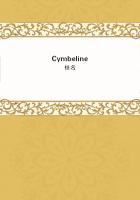At this moment the young officer was beside his unconscious mistress, who certainly was unaware that she was doubly faithless. Madame Jules was seated, in a ***** attitude, like the least artful woman in existence, soft and gentle, full of a majestic serenity. What an abyss is human nature! Before beginning a conversation, the baron looked alternately at the wife and at the husband. How many were the reflections he made! He recomposed the "Night Thoughts" of Young in a second. And yet the music was sounding through the salons, the light was pouring from a thousand candles. It was a banker's ball,--one of those insolent festivals by means of which the world of solid gold endeavored to sneer at the gold-embossed salons where the faubourg Saint-Germain met and laughed, not foreseeing the day when the bank would invade the Luxembourg and take its seat upon the throne. The conspirators were now dancing, indifferent to coming bankruptcies, whether of Power or of the Bank. The gilded salons of the Baron de Nucingen were gay with that peculiar animation that the world of Paris, apparently joyous at any rate, gives to its fetes. There, men of talent communicate their wit to fools, and fools communicate that air of enjoyment that characterizes them. By means of this exchange all is liveliness. But a ball in Paris always resembles fireworks to a certain extent; wit, coquetry, and pleasure sparkle and go out like rockets. The next day all present have forgotten their wit, their coquetry, their pleasure.
"Ah!" thought Auguste, by way of conclusion, "women are what the vidame says they are. Certainly all those dancing here are less irreproachable actually than Madame Jules appears to be, and yet Madame Jules went to the rue Soly!"
The rue Soly was like an illness to him; the very word shrivelled his heart.
"Madame, do you ever dance?" he said to her.
"This is the third time you have asked me that question this winter," she answered, smiling.
"But perhaps you have never answered it."
"That is true."
"I knew very well that you were false, like other women."
Madame Jules continued to smile.
"Listen, monsieur," she said; "if I told you the real reason, you would think it ridiculous. I do not think it false to abstain from telling things that the world would laugh at."
"All secrets demand, in order to be told, a friendship of which I am no doubt unworthy, madame. But you cannot have any but noble secrets; do you think me capable of jesting on noble things?"
"Yes," she said, "you, like all the rest, laugh at our purest sentiments; you calumniate them. Besides, I have no secrets. I have the right to love my husband in the face of all the world, and I say so,--I am proud of it; and if you laugh at me when I tell you that I dance only with him, I shall have a bad opinion of your heart."
"Have you never danced since your marriage with any one but your husband?"
"Never. His arm is the only one on which I have leaned; I have never felt the touch of another man."
"Has your physician never felt your pulse?"
"Now you are laughing at me."
"No, madame, I admire you, because I comprehend you. But you let a man hear your voice, you let yourself be seen, you--in short, you permit our eyes to admire you--"
"Ah!" she said, interrupting him, "that is one of my griefs. Yes, I wish it were possible for a married woman to live secluded with her husband, as a mistress lives with her lover, for then--"
"Then why were you, two hours ago, on foot, disguised, in the rue Soly?"
"The rue Soly, where is that?"
And her pure voice gave no sign of any emotion; no feature of her face quivered; she did not blush; she remained calm.
"What! you did not go up to the second floor of a house in the rue des Vieux-Augustins at the corner of the rue Soly? You did not have a hackney-coach waiting near by? You did not return in it to the flower-shop in the rue Richelieu, where you bought the feathers that are now in your hair?"
"I did not leave my house this evening."
As she uttered that lie she was smiling and imperturbable; she played with her fan; but if any one had passed a hand down her back they would, perhaps, have found it moist. At that instant Auguste remembered the instructions of the vidame.
"Then it was some one who strangely resembled you," he said, with a credulous air.
"Monsieur," she replied, "if you are capable of following a woman and detecting her secrets, you will allow me to say that it is a wrong, a very wrong thing, and I do you the honor to say that I disbelieve you."
The baron turned away, placed himself before the fireplace and seemed thoughtful. He bent his head; but his eyes were covertly fixed on Madame Jules, who, not remembering the reflections in the mirror, cast two or three glances at him that were full of terror. Presently she made a sign to her husband and rising took his arm to walk about the salon. As she passed before Monsieur de Maulincour, who at that moment was speaking to a friend, he said in a loud voice, as if in reply to a remark: "That woman will certainly not sleep quietly this night."
Madame Jules stopped, gave him an imposing look which expressed contempt, and continued her way, unaware that another look, if surprised by her husband, might endanger not only her happiness but the lives of two men. Auguste, frantic with anger, which he tried to smother in the depths of his soul, presently left the house, swearing to penetrate to the heart of the mystery. Before leaving, he sought Madame Jules, to look at her again; but she had disappeared.
What a drama cast into that young head so eminently romantic, like all who have not known love in the wide extent which they give to it. He adored Madame Jules under a new aspect; he loved her now with the fury of jealousy and the frenzied anguish of hope. Unfaithful to her husband, the woman became common. Auguste could now give himself up to the joys of successful love, and his imagination opened to him a career of pleasures. Yes, he had lost the angel, but he had found the most delightful of demons. He went to bed, building castles in the air, excusing Madame Jules by some romantic fiction in which he did not believe. He resolved to devote himself wholly, from that day forth, to a search for the causes, motives, and keynote of this mystery. It was a tale to read, or better still, a drama to be played, in which he had a part.















